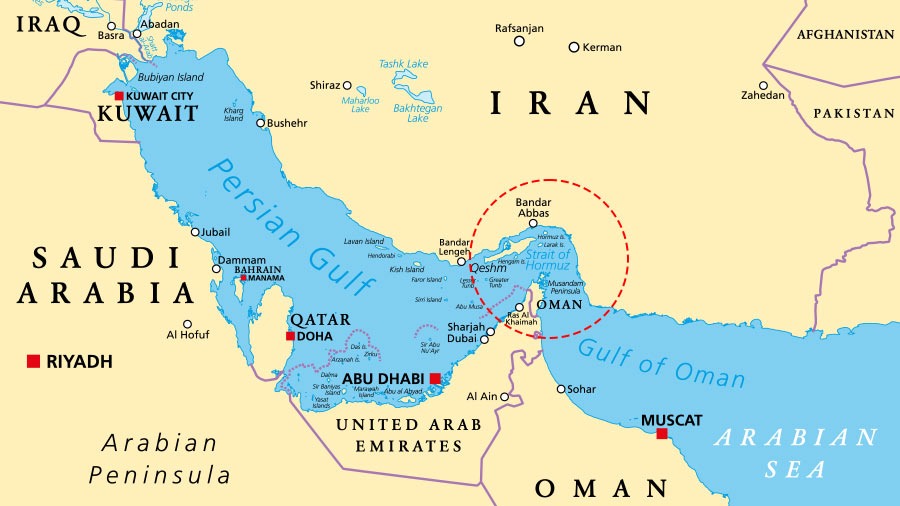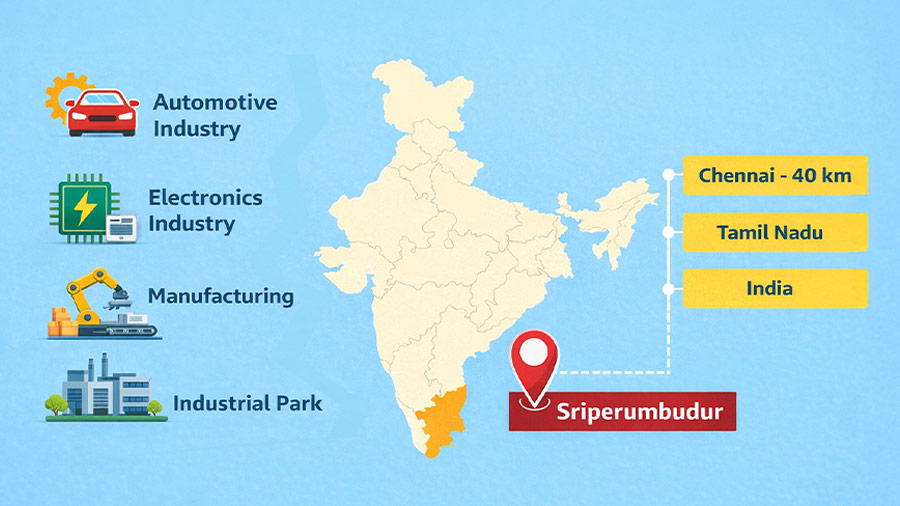Economy & Trade
India-Canada CEPA 2026: Modi-Carney Sign Terms of Reference, Target US$50 Billion Trade by 2030
03/03/2026India and Canada have set a course to mend diplomatic ties after three years of strained relations. The prime ministers of both countries announced the launch of negotiations for the Comprehensive Economic Partnership Agreement (CEPA), advancing trade, investment, and strategic cooperation.
Iran Conflict Raises Oil, Rupee, and Trade Risks for India’s Economy
03/03/2026With over 80 percent oil import dependence and significant Gulf trade exposure, India faces multi-layered risks from the escalating Iran conflict, spanning freight costs, aviation disruption, remittance sensitivity, and equity market volatility.
India’s New GDP Series (Base Year 2022-23): Structural Recalibration for Businesses & Investors
02/27/2026India’s new GDP series (base year 2022-23) modernizes economic measurement. This structural recalibration offers investors and businesses deeper sectoral insights and a more accurate reflection of India's growth trajectory.
India and Brazil Target US$30 Billion Trade by 2030: Strategic Partnership Expands Across Minerals, Tech, and Healthcare
02/27/2026India and Brazil plan to double bilateral trade to US$30 billion by 2030, expanding cooperation across critical minerals, digital technology, healthcare, and supply chains.
US Tariff Twists: Where Does India Stand and How Will Exporters Get Impacted?
02/26/2026With the US Supreme Court tariff ruling, followed by new solar import duties of 125.87 percent on Indian exporters, India-US trade dynamics are being reshaped, prompting exporters and investors to reassess pricing strategies, supply chains, and tariff risk exposure.
India’s Next Growth Cycle: Sector Intelligence for Scalable Market Entry
02/23/2026From sector entry considerations to market localization, compliance planning, and export optimization, this magazine provides a practical roadmap for scalable, long-cycle investment in India.
-
02/18/2026
Europe’s India Pivot: Ports, Missiles, and AI
India Briefing -
02/18/2026
Modi and Macron Elevate India-France Ties to 'Special Global Strategic Partnership'
India Briefing -
02/16/2026
India’s Orange Economy: Creative Industries Outlook After Budget 2026
India Briefing -
02/12/2026
India Fast-Tracks New Drug & Clinical Trial Approvals with 2026 NDCT Amendments
India Briefing -
02/11/2026
After 10 Months of Tariff Deadlock, US and India Find Common Ground on Trade
India Briefing
Tax & Accounting
India Tax Calendar March 2026: Guide to Advance Tax, Transfer Pricing, and FTC Filing
02/26/2026As FY 2025-26 approaches its close, March 2026 represents a key compliance period under India’s direct tax framework. Businesses should review the March tax compliance calendar and ensure timely data reconciliation and reporting readiness.
India–France Tax Treaty Revised: Dividend Relief, Capital Gains Changes, and Investor Impact
02/25/2026The revised India–France tax treaty changes dividend taxes, capital gains rights, and compliance rules. Key insights for French investors and India operations.
IGST Applicability on Expatriate Employment in India: Karnataka High Court Provides Tax Clarity
02/21/2026The Karnataka High Court has clarified the GST treatment of expatriate employment in India, ruling that remuneration paid to foreign employees under a genuine employer-employee relationship is not subject to IGST under the reverse charge mechanism.
India's Component Warehousing Safe Harbor: A Competitive Tax Proposition for Global Manufacturers
02/11/2026India’s Budget 2026-27 introduces a 2 percent safe harbor for bonded component warehousing and a five-year tax exemption for non-resident suppliers, offering transfer pricing certainty and strengthening India’s role in global manufacturing supply chains.
India Unveils Draft Income Tax Rules, 2026 Ahead of April 1 Rollout
02/09/2026India’s tax administration has released the draft Income Tax Rules, 2026. The proposal streamlines the compliance framework, reducing it to 333 rules and 190 statutory forms. Public consultation remains open until February 22, 2026.
Budget 2026 Explainer: Tax Clarity and Incentives for Cloud, Data Centers & AI Players
02/02/2026Budget 2026–27 elevates data centers to strategic infrastructure, pairing tax exemptions and regulatory certainty with India’s fast-growing digital demand. For global cloud players, India is moving from an emerging data center market to a scale-and-stability play position.
-
02/02/2026
Budget 2026 Resets GIFT City Economics for Banks with 20-Year IBU Tax Holiday
India Briefing -
01/30/2026
What the Binny Bansal Tax Residency Ruling Means for HNIs Moving Abroad
India Briefing -
01/22/2026
US Parent-India Subsidiary: Transfer Pricing and Intercompany Agreements
India Briefing -
01/19/2026
Tiger Global-Flipkart Tax Dispute: A Landmark Test of India’s Anti-Avoidance Regime
India Briefing -
01/07/2026
An Introduction to Doing Business in India 2026 - New Publication Out Now
India Briefing
Legal & Regulatory
India Revises External Commercial Borrowing Framework with 2026 FEMA Amendment: Notes for Businesses
03/03/2026The RBI’s 2026 ECB amendments raise borrowing limits to USD 1 billion, simplify compliance, and restructure India’s cross-border financing framework.
Leave India Notice (LIN) on Employment Visa: A Compliance Checklist for Expats
02/25/2026A recent judgment by the Karnataka High Court has clarified how Leave India Notices are issued to foreign workers in India, holding that immigration authorities need not separately hear the employee if compliance issues originate from the sponsoring employer.
What Counts as an “Industry” Under Indian Law? Supreme Court to Decide on March 17-18
02/16/2026India’s Supreme Court will revisit the definition of “industry” under the Industrial Disputes Act, 1947, a ruling that could directly influence the interpretation and implementation of the Industrial Relations Code, 2020.
New FEMA Guarantees Framework: From Approval-Centric Controls to a Principle-Led Regime
02/16/2026The RBI has replaced the Foreign Exchange Management (Guarantees) Regulations, 2000, with the 2026 Regulations, introducing a principle-based, eligibility-driven framework under FEMA while retaining the underlying statutory prohibition structure.
India's Antitrust Regulator CCI Fines Intel US$3.01 Million for Abuse of Dominant Position
02/13/2026Antitrust regulator CCI has imposed a US$3.01 million fine on Intel Corporation for an India-specific warranty policy deemed discriminatory and restrictive of parallel imports. The ruling clarifies how dominance is assessed under Indian competition law and highlights key compliance risks global companies.
Deepfake, Content Labeling & Safe Harbor Risks for Global Platforms: India’s 2026 AI Regulation
02/12/2026India’s latest updates to the IT (Intermediary Guidelines and Digital Media Ethics Code) Rules, 2021, tighten artificial intelligence (AI) and deepfake regulation with mandatory labeling and 2-3 hour takedowns, putting safe harbor protection at risk for foreign platforms.
-
02/12/2026
India Fast-Tracks New Drug & Clinical Trial Approvals with 2026 NDCT Amendments
India Briefing -
02/11/2026
Uttar Pradesh Updates Shops & Establishments Law: Check Applicability, Working Hours, and Compliance
India Briefing -
02/10/2026
India Briefing
-
02/09/2026
One Central Registration: India's Answer to Labor Compliance Complexity
India Briefing -
02/05/2026
India’s New Insurance FDI Framework Takes Effect from February 5, 2026
India Briefing
Industries
Investing in Sriperumbudur: Tamil Nadu's High-Value Manufacturing Corridor
02/17/2026Sriperumbudur in Tamil Nadu is one of India’s most strategic high-value corridors, propelled by electronics production and a strong global OEM presence, including Foxconn. The region offers a scalable and de-risked platform for investment in India through 2026.
What Counts as an “Industry” Under Indian Law? Supreme Court to Decide on March 17-18
02/16/2026India’s Supreme Court will revisit the definition of “industry” under the Industrial Disputes Act, 1947, a ruling that could directly influence the interpretation and implementation of the Industrial Relations Code, 2020.
India’s Orange Economy: Creative Industries Outlook After Budget 2026
02/16/2026As of 2026, India’s orange economy is emerging as a high-growth services opportunity, spanning media, live concerts, AVGC, and creative industries, supported by policy reform.
India Fast-Tracks New Drug & Clinical Trial Approvals with 2026 NDCT Amendments
02/12/2026India’s 2026 amendments to the New Drug and Clinical Trials (NDCT) Rules, 2019, materially improve the operating environment for pharmaceutical companies, contract manufacturers, and foreign investors by compressing approval timelines and reducing pre-licensing bottlenecks.
India's Textile PLI Scheme: Extended Window till March 31
02/10/2026India has extended the application window for the Textile PLI Scheme to March 31, 2026. Businesses in the textile sector should act quickly to secure incentives for scaling production and strengthening export competitiveness.
India’s New Insurance FDI Framework Takes Effect from February 5, 2026
02/05/2026India’s liberalized insurance foreign direct investment (FDI) regime is now operational, allowing up to 100 percent foreign ownership from February 5, 2026, under the amended insurance laws.
-
02/02/2026
Budget 2026 Resets GIFT City Economics for Banks with 20-Year IBU Tax Holiday
India Briefing -
02/01/2026
India Briefing
-
01/29/2026
Investing in India’s Insurance Sector: Frequently Asked Questions
India Briefing -
01/29/2026
India Amends Foreign Investment Rules for Insurance Companies: What Global Insurers Need to Know
India Briefing -
01/28/2026
Luxury Cars Take the Fast Lane: How European Carmakers Stand to Gain from the India-EU FTA
India Briefing
HR & Payroll
Leave India Notice (LIN) on Employment Visa: A Compliance Checklist for Expats
02/25/2026A recent judgment by the Karnataka High Court has clarified how Leave India Notices are issued to foreign workers in India, holding that immigration authorities need not separately hear the employee if compliance issues originate from the sponsoring employer.
IGST Applicability on Expatriate Employment in India: Karnataka High Court Provides Tax Clarity
02/21/2026The Karnataka High Court has clarified the GST treatment of expatriate employment in India, ruling that remuneration paid to foreign employees under a genuine employer-employee relationship is not subject to IGST under the reverse charge mechanism.
What Counts as an “Industry” Under Indian Law? Supreme Court to Decide on March 17-18
02/16/2026India’s Supreme Court will revisit the definition of “industry” under the Industrial Disputes Act, 1947, a ruling that could directly influence the interpretation and implementation of the Industrial Relations Code, 2020.
Uttar Pradesh Updates Shops & Establishments Law: Check Applicability, Working Hours, and Compliance
02/11/2026The Indian state of Uttar Pradesh has overhauled its Shops and Commercial Establishments Act, expanding statewide applicability and modernizing employer compliance. The latest updates include threshold-based coverage, digital registration, revised working hours, and stronger enforcement for businesses operating in the state.
Madhya Pradesh Shops & Establishments Act Amendment: Digital Compliance Reforms and Employer Implications
02/10/2026The Madhya Pradesh Shops & Establishment Act, Second Amendment, enacted on December 15, 2025, brings digital registration, online inspections, real-time updates, and simplified compliance for employers operating in the state.
One Central Registration: India's Answer to Labor Compliance Complexity
02/09/2026India’s one central registration under the new labor codes streamlines employer registrations, licenses, and returns, while preserving statutory worker protections.
-
01/14/2026
Gujarat Updates Labor Rules for Shops & Commercial Establishments
India Briefing -
01/07/2026
An Introduction to Doing Business in India 2026 - New Publication Out Now
India Briefing -
01/02/2026
How India’s New Labor Codes Will Reshape M&A Transactions in 2026
India Briefing -
12/31/2025
India Releases Labor Code Draft Rules; Stakeholder Feedback Begins Dec. 31, 2025
India Briefing -
12/18/2025
How India's New e-B-4 Visa Solves Your Foreign Talent Challenges
India Briefing
 Our firm Dezan Shira & Associates provides legal, tax and operational advisory across Asia.
Our firm Dezan Shira & Associates provides legal, tax and operational advisory across Asia. 




























